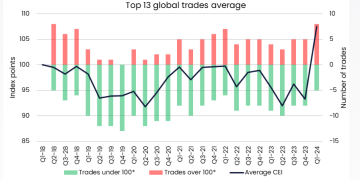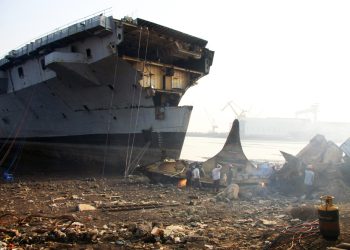Risks to become redundant before entering into force
 The Hong Kong Convention on the recycling of ships has been described, by the International Maritime Organization’s (IMO) Stefan Micalef as “tailored to the needs of global shipping” and one which “takes account of commercial practicalities”. Ms. Cleopatra Doumbia-Henri of the International Labour Organisation suggests that in its sharing of responsibilities, the convention is “of benefit to all maritime nations”.
The Hong Kong Convention on the recycling of ships has been described, by the International Maritime Organization’s (IMO) Stefan Micalef as “tailored to the needs of global shipping” and one which “takes account of commercial practicalities”. Ms. Cleopatra Doumbia-Henri of the International Labour Organisation suggests that in its sharing of responsibilities, the convention is “of benefit to all maritime nations”.
One of the convention’s principal architects Dr. Nicos Mikelis, who recently retired from IMO and who has closely monitored the recycling industry for several years, points out that improvements in the principal sub-continental recycling yards are already taking place, with “significant progress” being made in Indian facilities and both Turkey and China currently operating at standards that would more than fulfil the convention requirements.
The Government of Bangladesh, he notes, clearly believe that the industry is valuable to that country and are seeking to implement improvements. Dr. Mikelis firmly believes that the incremental improvements which the Hong Kong Convention promotes will be a considerable advance and hopes that it will be ratified as soon as possible.
Not surprisingly, even though the controversial scheme for levying all ships calling at European Ports for a recycling fund has disappeared, Brussels is still pressing ahead with its proposed legislation that would prevent EU flag ships from being recycled in yards where beaching is still practised, namely those yards within the Indian Sub-Continent. The latest stage in this effort has come, despite warnings from owners and their organisations that ban beaching would effectively torpedo the convention, which so many interests worked so hard to develop. The Secretary-General of IMO is even travelling to Brussels to lend emphasis to the peril facing the convention, which risks becoming redundant before it ever comes into force.
For more information, click here.
Source: BIMCO


























































